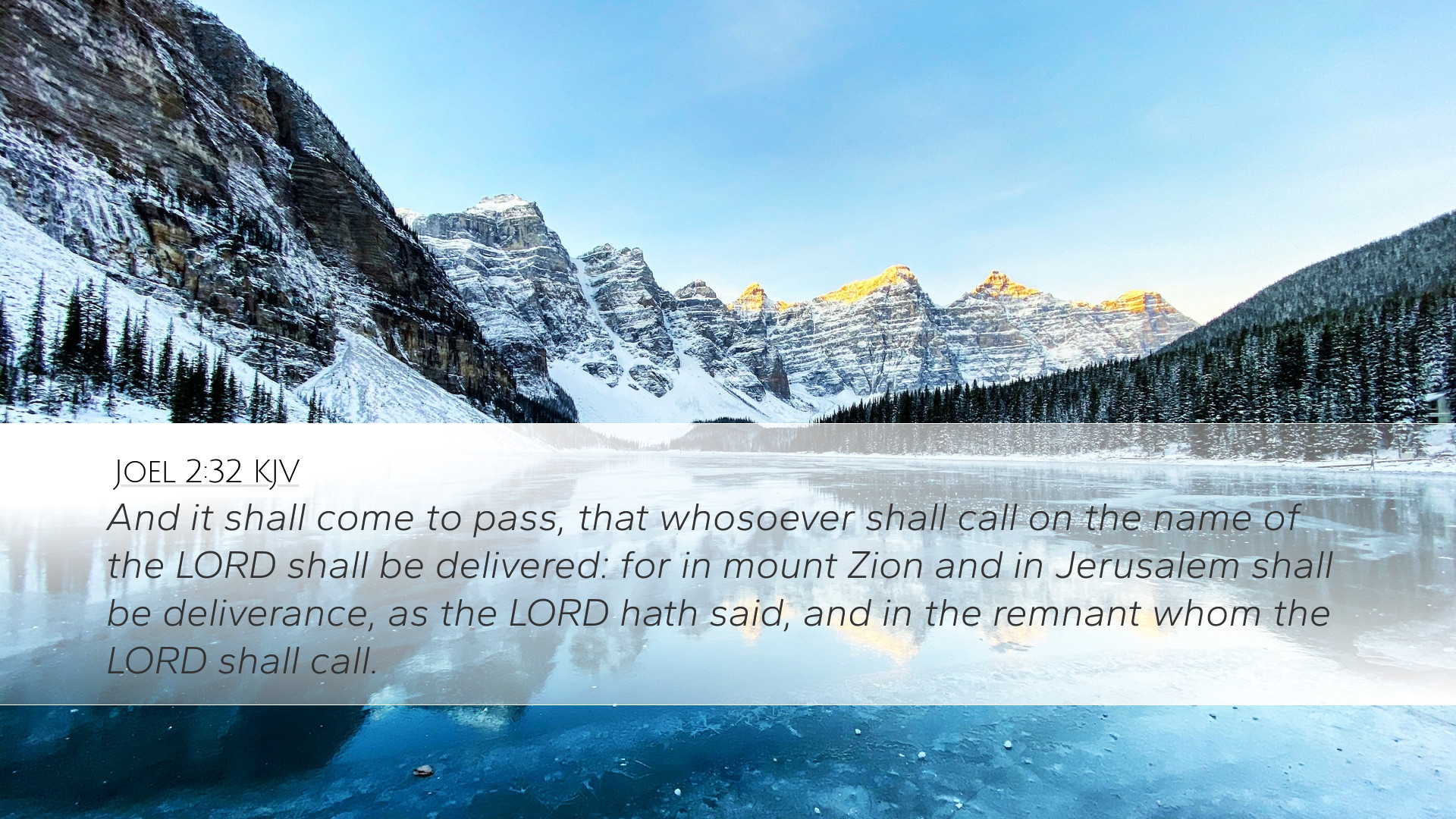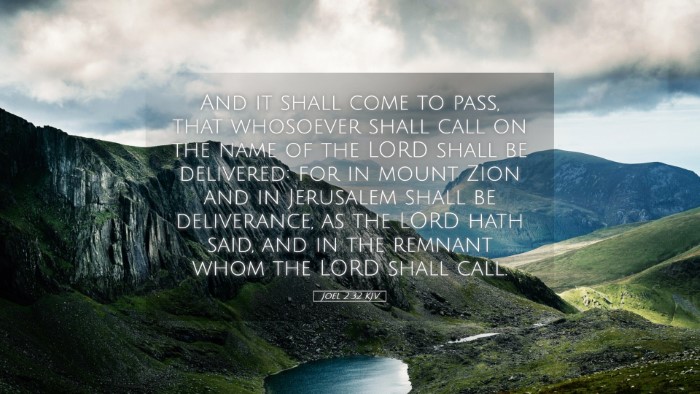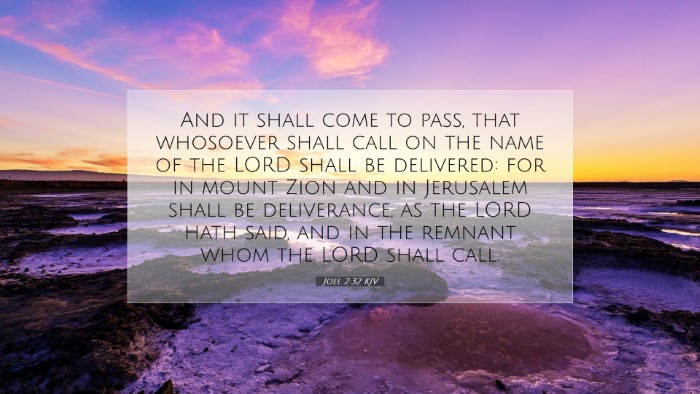Bible Commentary on Joel 2:32
Verse Context: Joel 2:32 states: "And it shall come to pass that whosoever shall call on the name of the Lord shall be delivered: for in mount Zion and in Jerusalem shall be deliverance, as the Lord hath said, and in the remnant whom the Lord shall call."
Introduction
The book of Joel is a prophetic work addressing the people of Israel in a time of great calamity, calling for repentance and a return to God. Joel 2:32 encapsulates the promise of salvation, showcasing the themes of deliverance, divine mercy, and the faithful remnant. This commentary draws from key insights from classic public domain commentaries, offering a comprehensive understanding of this pivotal scripture.
Exegesis of the Text
Call on the Name of the Lord: The phrase "whosoever shall call on the name of the Lord" emphasizes the inclusivity of God’s call to salvation. Matthew Henry notes that this is an invitation extending beyond Israel, signaling the universality of God's mercy. The act of calling signifies an acknowledgment of God’s sovereignty and a genuine appeal for help.
Deliverance: The promise of deliverance highlighted in this verse has profound implications. Albert Barnes takes note that deliverance entails both physical and spiritual rescue, suggesting that God not only saves from temporal afflictions but also from eternal judgment. This highlights the dual nature of God's involvement in the lives of His people.
Mount Zion and Jerusalem
In the context of biblical geography, Mount Zion and Jerusalem hold significant theological weight. Adam Clarke emphasizes that Zion represents the place of God’s chosen dwelling and His covenant with Israel. Thus, deliverance is grounded in the faithful city and the fulfillment of God's promises to His people.
The Remnant
The reference to a remnant speaks volumes about God’s faithfulness to His covenant. The remnant refers to those who remain loyal amidst apostasy and moral decay. Henry asserts that God preserves a remnant for Himself, ensuring that His purposes are accomplished even in times of judgment. This speaks to the hope for restoration and continuity of faith.
Theological Themes
- Grace and Mercy: The invitation to call on the Lord encapsulates the grace extended to sinners, reflecting God’s boundless mercy. Barnes remarks that this grace is not limited by background or prior transgressions.
- Salvation: The comprehensive nature of salvation – from physical distress to spiritual renewal – echoes through this passage. Clarke notes that salvation is both a present reality and a future hope for believers.
- Eschatological Significance: This verse has often been interpreted as prophetic about the outpouring of the Spirit on all flesh, linking it with New Testament events at Pentecost. The implications for eschatology are profound, signaling a time when all nations will seek the Lord.
Application for Today
As pastors, students, theologians, and Bible scholars, Joel 2:32 invokes a call to action and reflection:
- Evangelistic Impulse: The universality of the call to salvation demands that the church be proactive in evangelism, ensuring that the message of deliverance reaches all corners of society.
- Spiritual Vigilance: Understanding the context of God's judgment and the promise of a remnant urges believers to remain vigilant and faithful to God amidst cultural diversions.
- Hope in Despair: In times of societal upheaval, this verse provides hope. It reassures that God's deliverance is available to all who seek Him, encouraging believers to remain steadfast in prayer and reliance on God.
Conclusion
Joel 2:32 embodies a profound message of hope and deliverance. By calling on the name of the Lord, believers have access to His saving grace. The promise of a remnant showcases God's faithfulness in preserving His people. This verse serves as both a reminder and an encouragement to engage deeply with the themes of repentance and salvation, drawing us all into a closer relationship with the God of deliverance.


